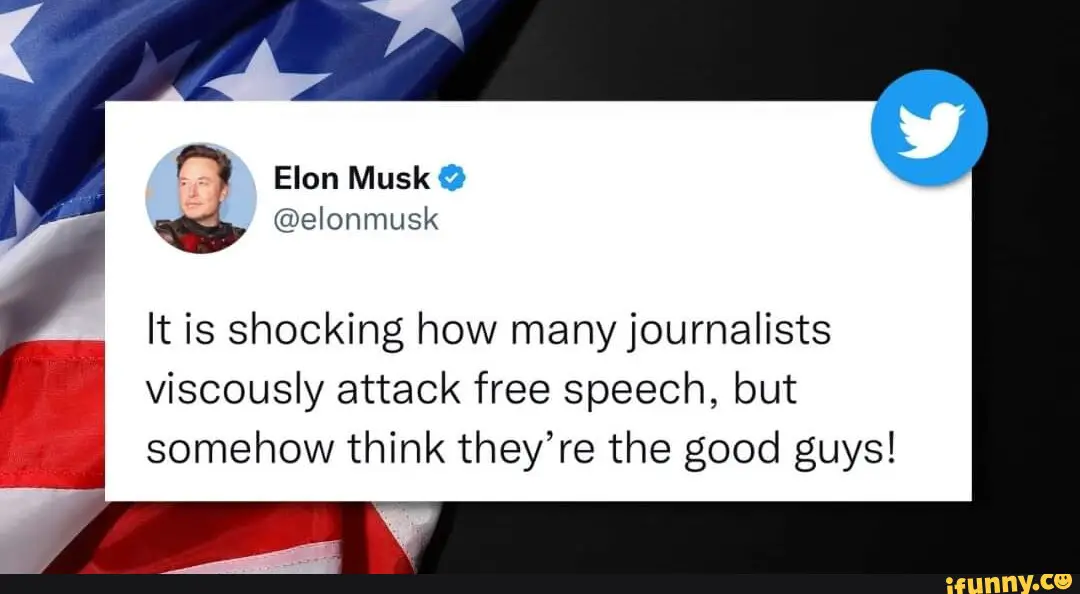When he originally announced his proposal to buy the firm last May, Elon Musk pledged that Twitter would become an unrestricted medium for free expression.
Musk now seems to be reversing his previous claims that he intended to unleash Twitter’s “great potential” to encourage free expression. Musk is the new owner of the social media platform. He said in a tweet from October that “Twitter cannot turn into a free-for-all hellscape, where anything may be said with no repercussions!”
Pinar Yildirim, a business professor at Wharton University whose research focuses on social media content regulation, is unsurprised by Musk’s temperate turnaround.
She said that as the billionaire struggles to make a profit on a platform that derives 90% of its income from advertising, the realities of operating a company are catching up to him. Since Musk’s $44 billion transaction concluded last month, Twitter has seen a “huge reduction” in income as a result of key sponsors pausing their advertisements.
Companies including Audi, General Mills, GM, Pfizer, Mondelez, United Airlines, and others have left the stage after raising concerns about an abrupt, sharp increase in hate speech and false information in the days after Musk’s appointment. The usage of the N-word increased by roughly 500% during the course of a 12-hour period, according to a research team that monitors cyber threats.
“Musk was saying that Twitter needed to become a platform for free expression for everyone and that it could be time to bring back some of these accounts that were banned for breaking content moderation rules. Additionally, we’ve seen a change in tone over the last few days,” Yildirim added in a SiriusXM interview with Wharton Business Daily.
He has been on record as saying that content moderation should not disappear, that Twitter need not become a site where anybody can say anything without repercussions, and that any content moderation or policy governing content moderation must be done according to guidelines defined by a committee or council.
Guardrails surrounding material, according to her, provide a feeling of security for both customers and enterprises. Because of this, content monitoring is required, even in a virtual town square where people may engage in free speech.
Consumers, according to Yildirim, “do not want to be on a platform seized by radicals, either on the right or the left or by persons who could have impulses to promote incorrect, misleading information or propaganda.” “At the same time, marketers do not want to place their advertisements on a platform that attracts such people,” the statement said.
Consumers do not wish to be on a site that has radicals taking control. At the same time, marketers do not want to place their advertising on a platform that attracts these individuals – Pinar Yildirim.
Musk slammed the organization for attempting to “kill free expression in America” and attributed the income decline to a group of activists who are forcing advertisers to stop. However, it seems that the pressure being applied by the coalition, which also consists of the NAACP, Muslim Advocates, GLAAD, Free Press, Common Cause, and others, is having an effect.
According to the CEO of snack food manufacturer Mondelez International Dirk Van de Put, since the change on Twitter was revealed, “what we’ve noticed lately is the volume of hate speech has increased dramatically.” “We believed there was a chance that the incorrect statements might display next to our advertising. We have thus chosen to wait and break until that danger is as minimal as feasible.
Musk, a “free speech absolutist” who calls himself, has often said that he intends to roll back many of these prohibitions. Several of these pledges have already been fulfilled, including the reinstatement of Donald Trump’s previously blocked account.
Over the weekend, Musk took action to unblock former President Donald Trump’s account, which roughly 52% of users said should be unblocked.
Rep. Marjorie Taylor Greene (R-GA), the Babylon Bee, and Defiant Ls were three well-known conservative accounts that were banned.
The number of journalists who viciously oppose free speech while erroneously believing they are on the side of good is startling. Musk posted on Twitter.
Kyle Becker, a conservative news analyst, tweeted in response to Musk’s remarks: “Consider what would happen if @ElonMusk were the right-wing bogeyman that these privileged left-wing journalists believe he is, and he chose to flip the script and ban all left-wing “fake news” from @Twitter. Nothing would be left for them to print!”
Musk supported such a statement.
Musk stated, “As is evident to everybody except the media, there is not one permanent ban on even the most far-left account spewing absolute untruth,” before adding, “Not even Associated Press with their wholly fake claim about Russian missiles striking Poland that had significant penalties for escalating the conflict.”
With inputs from Knowledge At Wharton & Washington Examiner

